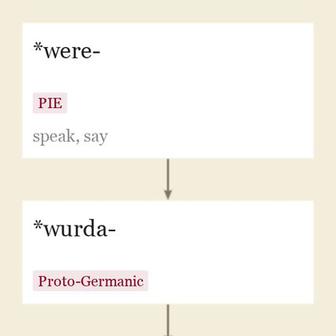password n.
"
Entries linking to password
late 13c., passen (transitive), "
Intransitive sense of "
The meaning "

Old English word "
The meaning "
It is dangerous to leave written that which is badly written. A chance word, upon paper, may destroy the world. Watch carefully and erase, while the power is still yours, I say to myself, for all that is put down, once it escapes, may rot its way into a thousand minds, the corn become a black smut, and all libraries, of necessity, be burned to the ground as a consequence. [William Carlos Williams, "Paterson"]
updated on February 19, 2020